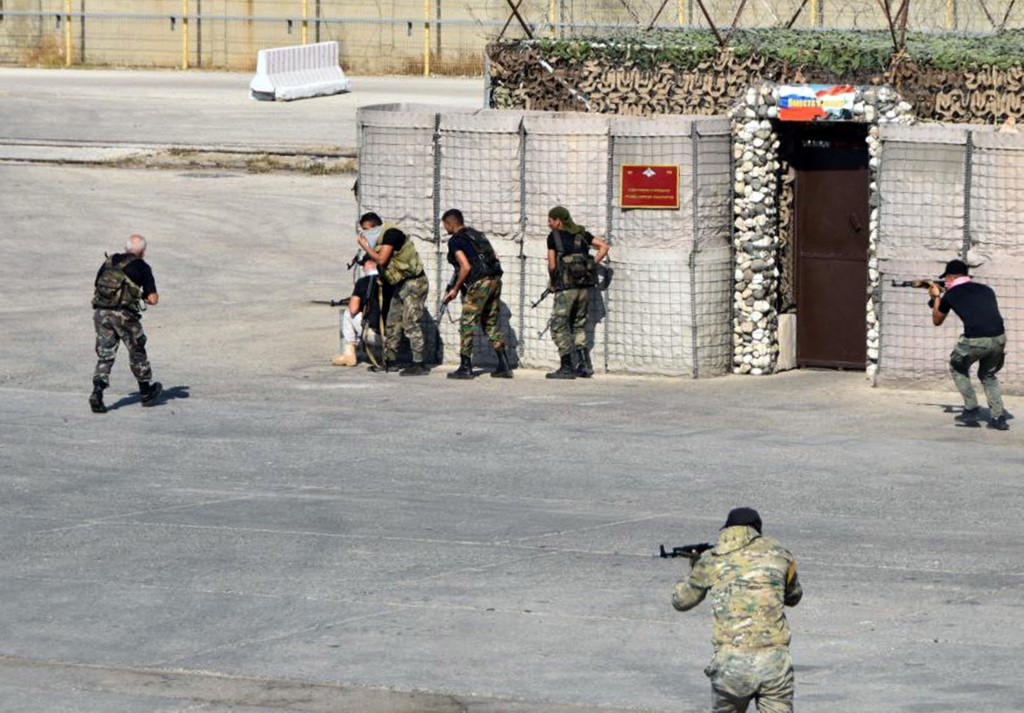On Wednesday, the United States unveiled sanctions on five people and four entities allegedly involved in a global network of “sanctions circumvention on behalf of Russian elites,” the Treasury Department said.
The parties targeted are associated with or leverage the TGR Group, which the department called “an extensive sanctions evasion and money laundering network.”
JOIN US ON TELEGRAM
Follow our coverage of the war on the @Kyivpost_official.

“Through the TGR Group, Russian elites sought to exploit digital assets – in particular, US dollar-backed stablecoins – to evade US and international sanctions,” said Bradley Smith, Treasury's acting under-secretary for terrorism and financial intelligence.
He added that the United States and partners are “committed to disrupting any effort by Russia to use digital assets or other illicit financial schemes to accrue, store and transfer their ill-gotten gains.”
Among the individuals are George Rossi, a Ukrainian national who is believed to be in control of TGR Group, alongside direct subordinate Elena Chirkinyan, a Russian.

Do Georgia’s Ongoing Protests Have Anything in Common with Ukraine’s Maidan?
The announcement also identified entities in the United Kingdom, United Arab Emirates, and Thailand.
The action on Wednesday also “identifies a Wyoming-based entity that is owned 50% or more by a sanctioned individual,” the Treasury said.
The sanctions came about through cooperation with the United Kingdom, UAE and others.
“We will continue to protect the international financial system and take action against sanctions evaders inside and outside of Russia,” said State Department spokesman Matthew Miller.
With the sanctions, all property and interests in property of blocked individuals in the United States must be reported to US authorities.
UK Issues Largest Sanctions Yet on Russian ‘Shadow Fleet’
Britain announced in October its largest sanctions to date against Russia's “shadow fleet” of tankers used to sidestep a Western embargo on oil exports after its invasion of Ukraine.
The government's latest crackdown bars 18 ships from UK ports and British maritime services, bringing the total number sanctioned to 43.
Experts say the so-called ghost fleet, with opaque ownership or without proper insurance, has allowed the Kremlin to keep exporting despite sanctions on exports and oil price cap on its global sales.
The shadow fleet was also accused by the UK of posing a threat to the environment and coastlines “as a result of its flagrant violation of basic safety standards.”
The UK Foreign Commonwealth and Development Office (FCDO) said its sanctions were “starving Putin's war machine of crucial revenues. A significant number of the ships targeted by the UK to date have been forced to sit idling uselessly outside ports,” it said in a statement.
“I have made it my personal mission to constrain the Kremlin, closing the net around Putin and his mafia state using every tool at my disposal,” said Foreign Secretary David Lammy.
However, a report this week by the Kyiv School of Economics found that the volume of Russian oil being exported via shadow tankers had almost doubled to 4.1 million barrels a day in the year to June 2024.
Despite Western sanctions, 70 percent of Russian oil exports by sea were conducted by ghost tankers, said the report.
The Moscow-led local prosecutor’s office said a 45-year-old unnamed man had sent the locations of Russian air defense units in Kerch to Ukrainian intelligence in September of last year.
Ships targeted in the new UK sanctions package include some owned by Sovcomflot, Russia's largest shipping company.
Britain's foreign ministry also announced sanctions against four LNG tankers and Russian gas company Rusgazdobycha JSC.
You can also highlight the text and press Ctrl + Enter






